What do Andrew Fukuda (The Hunt) and Alyson Noël (Fated, St. Martin's, May 2012) have in common? A penchant for world-building and an editor named Rose Hilliard. Hilliard first began working with Noël in 2007, and says that she and Noël "came up through the ranks together." So when Hilliard received the manuscript for Andrew Fukuda's The Hunt, she was eager to share her newest author with one of her most established writers. According to Hilliard, "Alyson has become one of The Hunt's biggest fans." Here the two authors interview each other about their latest novels and their craft.
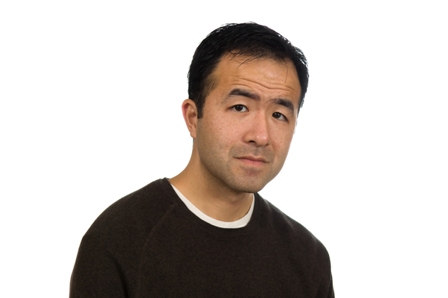 Andrew Fukuda: When I received the galley of Fated, I was like a kid grinning ear-to-ear, let into Disneyland hours before the gates opened. The pages pulsated with life, the story line sucked me in. But even as I marveled at this new world, I wondered: Which emotion was stronger, the sadness of bidding farewell to the world of The Immortals, or the excitement of creating the brand-new world of The Soul Seekers?
Andrew Fukuda: When I received the galley of Fated, I was like a kid grinning ear-to-ear, let into Disneyland hours before the gates opened. The pages pulsated with life, the story line sucked me in. But even as I marveled at this new world, I wondered: Which emotion was stronger, the sadness of bidding farewell to the world of The Immortals, or the excitement of creating the brand-new world of The Soul Seekers?
Alyson Noël: As much as I enjoyed writing The Immortals, I found myself missing my characters. I talked to them more than my own husband! But it wasn't long before I was lured by the promise of creating The Soul Seekers world, and all of the lovely research that goes along with it.
Which brings me to you: I was hooked from the first sentence. What inspired you to write this amazing, fast-paced story of love and survival where you turn the tables on how we've come to view vampires--creating solid, empathetic characters who are pitted against them?
Fukuda: It began with a single image in my head: a boy sitting in a classroom, desperately lonely despite the many students around him. This boy had a secret, I came to see, one so awful that if it were ever made known, his otherwise civil classmates would--in a split second--kill him. I pondered what that secret might be. When it came to me, I literally jumped out of my seat: the boy was the only surviving human in a world filled with vampire-like creatures. No existence could be lonelier or scarier than that. So for me the character came first, then the world around him, and last, the story line.
With Fated, did the characters come to you first, or was it the setting?
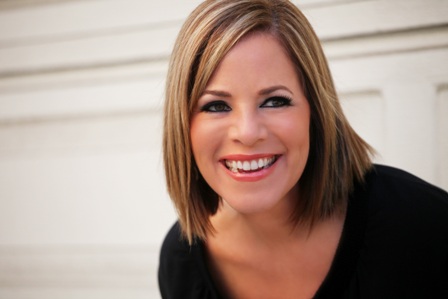 Noël: I love that a single image was the jumping off point for the complex world you created.
Noël: I love that a single image was the jumping off point for the complex world you created.
For me, there's usually a theme I want to explore, or a question I'm looking to answer, and then I build the characters and the world around it. The idea for The Soul Seekers was born out of the research I'd done for The Immortals. I read a lot of books on metaphysics and ancient lore and legend, and noticed how often themes of Shamanism cropped up. I knew immediately that it was the next idea I wanted to explore.
When it came time to create the cast, I did what I always do: I conjured a character that is woefully unprepared to face the kind of life-changing challenge that is barreling ahead. In this case, it was Daire Santos--the 16-year-old daughter of a Hollywood make-up artist who's spent her life moving from one movie set to another. Her life has made her both fiercely independent and emotionally guarded. To succeed as a Seeker, she'll have to endure a brutal initiation and allow herself to become vulnerable in ways she always sought to avoid.
Fukuda: Daire Santos is an amazing protagonist. Some authors create protagonists vastly different from themselves while other authors enjoy creating protagonists who are more natural extensions of themselves. Is Daire Santos an extension of Alyson Noël?
Noël: Daire is probably best described as containing bits of the real me, and rather large chunks of the fantasy me. Like me, she's more of an observer than a joiner, though I like to think that we're both pretty adventurous. I have a habit of becoming my characters. I craft each scene as though it's happening to me. I used to think everyone did this until I came across an author who told me that, rather than merging into the action, she directs the action.
I'm curious to know if you're a method writer or a director?
Fukuda: I'm as pure a method writer as they come. This is especially true when it comes to action scenes. Because I like to keep the action raw and visceral, I often throw my protagonist into predicaments from which even I'm not sure how he's going to escape. Sometimes, I paint him into such a terrible corner, I can see him turning to me and saying, "Are you kidding me? How am I supposed to get out of this?"
Noël: And that's exactly why I could not stop turning the pages! Though I also love the underlying theme of finding one's place in the world. When Gene describes himself as feeling like "a fake person," it reminded me of my own (failed) high school attempts to fit in. Was this a conscious idea on your part, or, did it just sort of spontaneously surface as you went along?
Fukuda: Ahh, high school. It was the best of times, it was the worst of times. Dickens was writing about high school, right? Like most, my adolescence swung like a pendulum between the extremes of self-discovery and self-forfeiture, the latter of which happened whenever I was peer-squeezed into one of those false molds you mentioned. During the months I wrote The Hunt, I dredged up some pretty painful high school memories. Writing it proved to be emotionally quite exacting, to say nothing of the physical toil.
As a prolific author with numerous award-winning bestsellers under your belt, how do you sustain the emotional and creative energy needed for the long haul?
Noël: While I've always wanted to be a writer, for a very long time I allowed life circumstances to stand in the way of the dream. I've been making up for lost time ever since. I've created a pretty intense schedule for myself, but the truth is, I love every second of it! Writing never feels like a job, and the dress code is comfortably lax compared to the flammable polyester dresses of my flight-attendant days.
I read that you were once a criminal prosecutor. What was it that inspired you to take the leap into YA fiction?
Fukuda: Like all lawyers, I hated my job and jumped ship at the first opportunity. Just kidding! I actually loved being a prosecutor. But fulfilling as it was, my love for writing ran deeper and truer. In my spare time, I worked on The Hunt. When the book really started coming into its own, I'd wake up early to write before the workday began. But it took a go-for-broke tenacity, the kind of fierce determination you also harnessed to make the publishing dream come true.


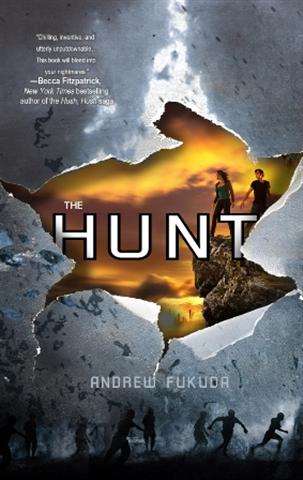 Andrew Fukuda (The Crossing) takes the feeling of isolation that dominates adolescence and builds a world around it in a novel where the tension rarely slackens.
Andrew Fukuda (The Crossing) takes the feeling of isolation that dominates adolescence and builds a world around it in a novel where the tension rarely slackens. Andrew Fukuda: When I received the galley of Fated, I was like a kid grinning ear-to-ear, let into Disneyland hours before the gates opened. The pages pulsated with life, the story line sucked me in. But even as I marveled at this new world, I wondered: Which emotion was stronger, the sadness of bidding farewell to the world of The Immortals, or the excitement of creating the brand-new world of The Soul Seekers?
Andrew Fukuda: When I received the galley of Fated, I was like a kid grinning ear-to-ear, let into Disneyland hours before the gates opened. The pages pulsated with life, the story line sucked me in. But even as I marveled at this new world, I wondered: Which emotion was stronger, the sadness of bidding farewell to the world of The Immortals, or the excitement of creating the brand-new world of The Soul Seekers? Noël: I love that a single image was the jumping off point for the complex world you created.
Noël: I love that a single image was the jumping off point for the complex world you created.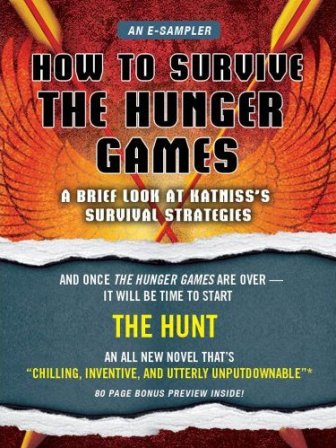 In March, two months before publication, an online advertising campaign launches to tie in with the release of The Hunger Games film. To introduce Hunger Games fans to The Hunt, Griffin has created a free e-sampler titled "How to Survive the Hunger Games." The e-sampler includes a chapter from The Hunger Games Companion (on Katniss's survival skills) as well as the first 80 pages of The Hunt. Goldshein said, "Our belief is this: once you read the first 80 pages, there's no turning back." The sampler is offered as a free download on the series'
In March, two months before publication, an online advertising campaign launches to tie in with the release of The Hunger Games film. To introduce Hunger Games fans to The Hunt, Griffin has created a free e-sampler titled "How to Survive the Hunger Games." The e-sampler includes a chapter from The Hunger Games Companion (on Katniss's survival skills) as well as the first 80 pages of The Hunt. Goldshein said, "Our belief is this: once you read the first 80 pages, there's no turning back." The sampler is offered as a free download on the series' 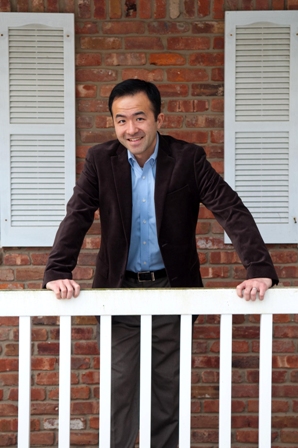 On your nightstand now:
On your nightstand now: